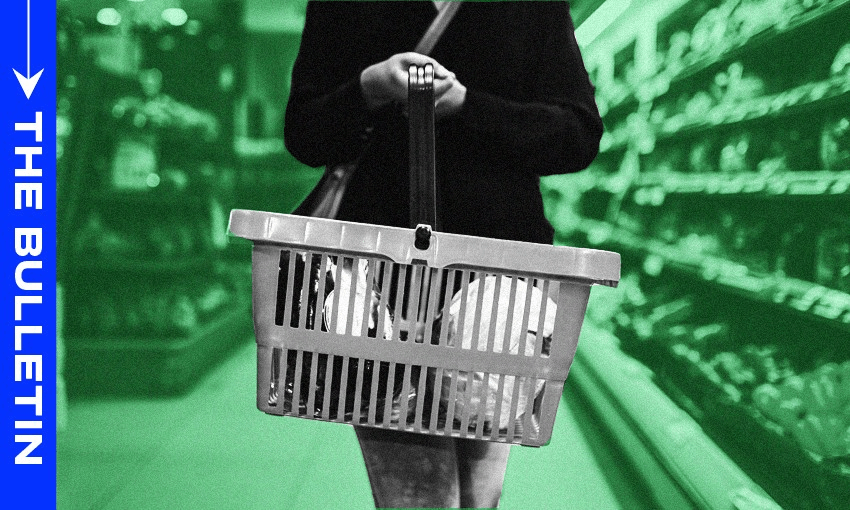The cost of living crisis appears to be over, even if it doesn’t feel like it yet, writes Stewart Sowman-Lund for The Bulletin.
To receive The Bulletin in full each weekday, sign up here.
Inflation steady
Annual inflation has remained static – or should that be stagnant – at 2.2%, according to the latest quarterly update from Stats NZ. As 1News reported, this marks the second consecutive result in which inflation has been within the Reserve Bank’s target range of 1-3%. The result is broadly in line with expectations, if a tad higher, with many economists expecting inflation to have dipped to a four-year low of 2.1% over the last quarter. Rent was the largest contributor to the annual inflation rate, said Stats NZ, up by 4.2%.
Kiwibank’s chief economist Jared Kerr said the result confirmed the cost of living crisis was “definitely over”, reported RNZ’s Susan Edmonds. However, it may not feel like that for households just yet. “You’ve got to experience a wage rise a couple of times with inflation running below that before you feel that real pick-up in your purchasing power,” Kerr said.
Where we’re heading
It feels a bit like financial deja vu to hear, but things should start to get easier from here on in. This latest inflation data firms up expectation for another large rates cut next month, though there remains the possibility of the Reserve Bank opting for a less risky 0.25 basis point cut to the official cash rate. The Herald’s Liam Dann reported (paywalled) that bank economists remained in agreement that a 50-point drop was appropriate in February. “If anything, today’s release should add to the RBNZ’s confidence that tight monetary conditions have worked to tame underlying inflation, meaning it’s entirely appropriate to return monetary conditions to a more neutral setting,” said ANZ senior economist Miles Workman. Beyond that, reported BusinessDesk’s Rebecca Howard (paywalled), the Reserve Bank is likely to pull back on how quickly it drops the official cash rate.
Government claims victory
The government has claimed the result showed its economic plan was working. Finance minister and newly appointed economic growth minister Nicola Willis said the foundation had been set for “economic growth, and the investment, jobs and incomes it creates”, reported Stuff. The opposition was less confident, with Labour’s finance spokesperson Barbara Edmonds saying the government was just taking credit for “global inflation trends” while families in New Zealand will still worse off.
Political point scoring aside, things do appear to be heading in the right direction (though renters will be undoubtedly be concerned by the increases there). For homeowners, the big question is what this means for mortgages. Major banks have already been dropping interest rates over the summer and these are expected to continue falling through the Reserve Bank’s cash rate decision next month. David Hargreaves at Interest said the central bank had effectively already promised it would drop rates by 0.5 basis points next month, but there was still a lot of water to flow under the bridge, including new unemployment data and another business outlook survey.
‘Growth’ the word of the day/month/year
The weekend’s National Party reshuffle has already teased what we can expect to hear a lot about in 2025: economic growth. With Nicola Willis taking on additional financial responsibility as the new economic growth minister, the government is tipped to double/triple/quadruple down on plans to boost the economy. Part of that, Willis told RNZ’s Morning Report yesterday, could include making it easier for tourists to visit New Zealand. Ben Thomas, on a new episode of The Spinoff’s Gone by Lunchtime podcast, noted a “tension” between that and the decision to raise the visitor levy last year to $100 from $35.
We’re due to get some insight into the government’s growth agenda later today, with PM Christopher Luxon delivering a state of the nation address in Auckland. The Post’s Luke Malpass said this speech is tipped to include “significant announcements” on foreign investment, including possible changes to incentivise research and science for economic benefits. Politik’s Richard Harman (paywalled) said Luxon was pinning “his political future” on being able to deliver on this. We’re about to learn the plan, now we wait to see how and when it’s acted on.


